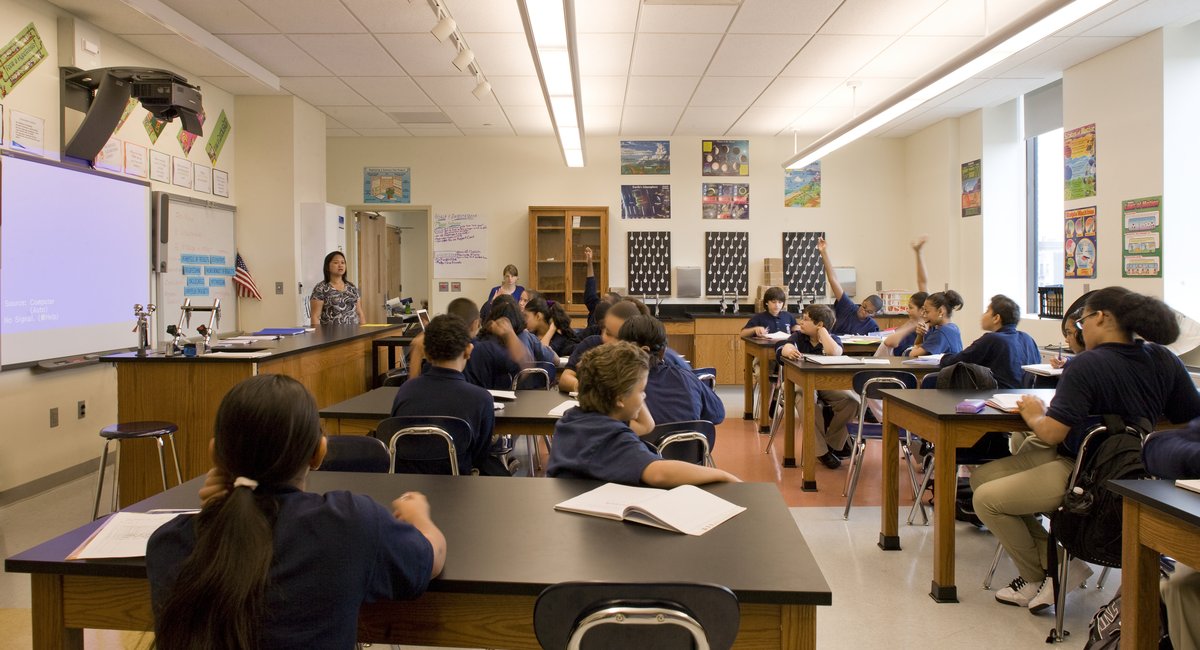State lawmakers are calling on their colleagues to pass legislation that would expand New York City’s gifted and talented programs as they become a flashpoint in the mayor’s race.
The legislation would require the city to increase the number of seats for the program in every school district across the five boroughs.
“One size does not fit all,” said Assemblymember William Colton, a South Brooklyn Democrat. “I spent 11 years in elementary school classrooms earlier in my career, and I know from personal experience that children’s needs and special skills — which vary dramatically — must be appropriately addressed from the very beginning.”
Colton planned to rally with fellow lawmakers Friday afternoon to promote a bill he introduced in January that would require more gifted classes.
“Every child in New York City deserves a chance to reach their full potential, and every family deserves access to programs that meet their child’s abilities,” state Sen. Stephen Chan said in a statement. Chan, a South Brooklyn Republican, said he was also introducing a bill on the subject.
The fight over gifted programs was reignited last week when Democratic mayoral nominee Zohran Mamdani said he would eliminate the program for kindergartners and move the program’s entry point to the third grade. Mamdani supports maintaining the accelerated classes from that point onward. Independent candidate Andrew Cuomo and Republican Curtis Sliwa have meanwhile called for expanding the program.
The Mamdani campaign did not immediately respond to a request for comment on the state lawmakers’ proposals.
Gifted programs serve a small fraction of the city’s students and generally use the same curriculum as regular classrooms, but move at a faster pace.
Nyah Berg is the executive director of New York Appleseed, which advocates for more integrated schools. She said the programs perpetuate already high levels of segregation in city schools.
Roughly 70% of students in the city’s gifted classes are white or Asian, even though white and Asian students only make up 35% of total enrollment. Black and Latino students account for more than 60% of the school system.
“Gifted programs are more a measure, especially at a young age, of social capital or social mobility your family might have,” Berg said.
But supporters of the accelerated programs say some children are ready to move at a faster pace than their classmates, and parents often see the programs as pathways to the city’s most rigorous and selective high schools.
Towards the end of his administration, former Mayor Bill de Blasio said he would eliminate and replace gifted classes in an effort to tackle segregation. The Adams administration backed off that plan, but introduced changes to how the youngest students were selected, relying on teacher recommendations rather than a standardized assessment.
Colton’s bill states children should gain admission to the programs through “academic merit” but not a test.
Mamdani said rising kindergartners are too young to be evaluated for the program.
“I continue to believe that it is incredibly important for us to deliver excellent quality public education for each and every New Yorker, and that for kindergartners, we should not have a gifted and talented program that is separating them on the basis of that assessment,” Mamdani said earlier this month.
Cuomo is promising to expand gifted and talented programs in every borough.
Sliwa also favors expansion and has accused Cuomo of failing to stand up for the programs when de Blasio sought to dismantle them.
